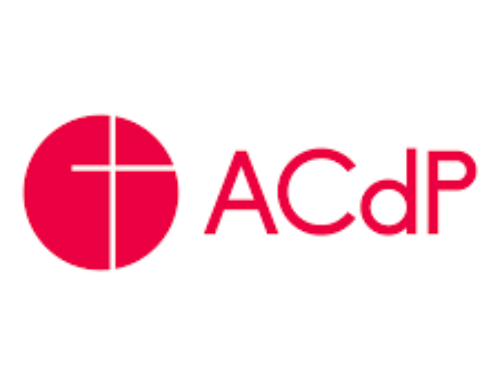November 25, 2019
Catholic Medical Association Responds to Article on Crisis Pregnancy Centers
Philadelphia, PA—The Catholic Medical Association disagrees with information in a recent article published by The Society for Adolescent Health and Medicine and The Society for Pediatric and Adolescent Gynecology, in which a claim is made that Crisis Pregnancy Centers (CPCs) pose serious health risks.
On the contrary, crisis pregnancy centers or pregnancy information centers, are organizations that seek to assure the provision of true and complete medical information by women with unplanned pregnancies who may be considering abortions but are ambivalent about that choice.
Their mission is to prevent hastily chosen and frequently regretted abortions by educating women with the truth about abortion, offering other options such as adoption or delivery with support and education in parenting skills. Crisis pregnancy centers provide peer advocacy and education, support resources related to pregnancy, along with correct and proper medical information about surgical and medical abortion procedures. In addition, CPCs offer non-medical services such as financial assistance, insurance referrals/acquisition, child-bearing resources, housing, food, clothing, furniture and adoption referrals.
The article cites studies done of crisis pregnancy centers providing non-evidence based, misleading information. The misinformation complaints focus on three medical risks: preterm labor, breast cancer and mental health disorders. The link between surgical abortion and preterm labor is established in multiple systematic reviews and meta-analyses showing a 44% increase risk in preterm birth and increase in low birth weight. The higher the surgical abortion rate, the higher the incidence of Preterm Birth (PTB).[1][2][3][4]
In 2013, an article from The American College of Pediatricians stated that induced abortion “prior to 32 weeks in and of itself is a risk factor for breast cancer due to the physiology of breast development and the manner in which abortion interferes with the maturation of the breast cells. Although largely ignored by the mainstream medical community, this risk information deserves a prominent place in the education of all adolescent women who may, in the future, consider an induced abortion.”[5] Other studies have shown a moderate increased risk of breast cancer associated with abortion.[6][7]
While the article strongly emphasizes mental health concerns, many who have treated and counselled women with a prior abortion can attest to the mental anguish many of these women feel. Indeed, there is evidence to support the link between abortion and mental health issues, as well as infertility.[8][9]
The authors also wish to apply regulations pertaining to crisis pregnancy centers with regard to information requirements, contraceptive counselling and referral for procedures which violate ethical beliefs. They also denounce the value of counselling women in need on their options, providing alternatives to abortion and psycho-social support. Paradoxically, the authors acknowledge “many clients report needing and valuing them” (CPCs).
The Catholic Medical Association continues to support life, the dissemination of valid and correct medical information and the true informed consent for women in very vulnerable situations.
Citations:
[1] Swingle HM, Colaizy TT, Zimmerman MB, Morriss FH Jr. Abortion and the risk of subsequent preterm birth: a systematic review with meta-analyses. J Reprod Med. 2009;54(2):95–108.
[2] Magro Malosso ER, Saccone G, Simonetti B, Squillante M, Berghella V. US trends in abortion and preterm birth. J Matern Fetal Neonatal Med. 2018;31(18):2463–2467. doi:10.1080/14767058.2017.1344963
[3] Saccone G, Perriera L, Berghella V. Prior uterine evacuation of pregnancy as independent risk factor for preterm birth: a systematic review and metaanalysis. Am J Obstet Gynecol. 2016;214(5):572–591. doi:10.1016/j.ajog.2015.12.044
[4] Shah PS, Zao J; Knowledge Synthesis Group of Determinants of preterm/LBW births. Induced termination of pregnancy and low birthweight and preterm birth: a systematic review and meta-analyses. BJOG. 2009;116(11):1425–1442. doi:10.1111/j.1471-0528.2009.02278.x
[5] American College of Pediatricians – December 2013. Information for the Adolescent Woman and Her Parents: Abortion and the Risk of Breast Cancer. Issues Law Med. 2017;32(1):99–104.
[6] Brind J, Condly SJ, Lanfranchi A, Rooney B. Induced abortion as an independent risk factor for breast cancer: a systematic review and meta-analysis of studies on south asian women. Issues Law Med. 2018;33(1):32–54.
[7] Deng Y, Xu H, Zeng X. Induced abortion and breast cancer: An updated meta-analysis. Medicine (Baltimore). 2018;97(3):e9613. doi:10.1097/MD.0000000000009613
[8] Jacob L, Kostev K, Gerhard C, Kalder M. Relationship between induced abortion and the incidence of depression, anxiety disorder, adjustment disorder, and somatoform disorder in Germany. J Psychiatr Res. 2019;114:75–79. doi:10.1016/j.jpsychires.2019.04.022
[9] Jacob L, Gerhard C, Kostev K, Kalder M. Association between induced abortion, spontaneous abortion, and infertility respectively and the risk of psychiatric disorders in 57,770 women followed in gynecological practices in Germany. J Affect Disord. 2019;251:107–113. doi:10.1016/j.jad.2019.03.060
###
The Catholic Medical Association is a national, physician-led community of 2,500 healthcare professionals consisting of more than 109 local guilds. CMA mission is to inform, organize, and inspire its members, in steadfast fidelity to the teachings of the Catholic Church, to uphold the principles of the Catholic faith in the science and practice of medicine.FacebookTwitterCompartir







